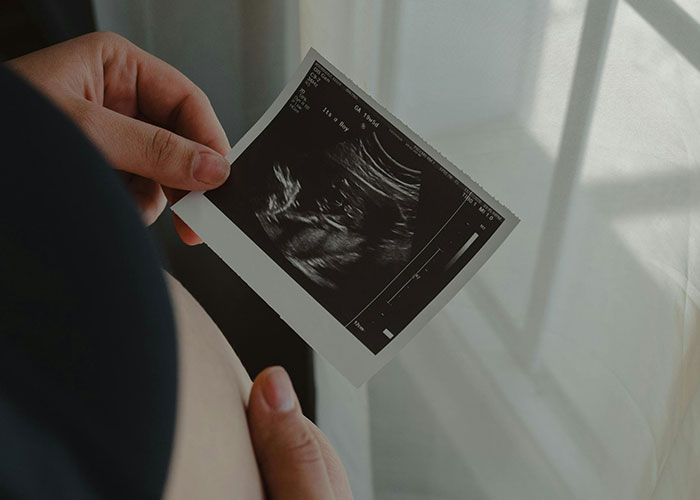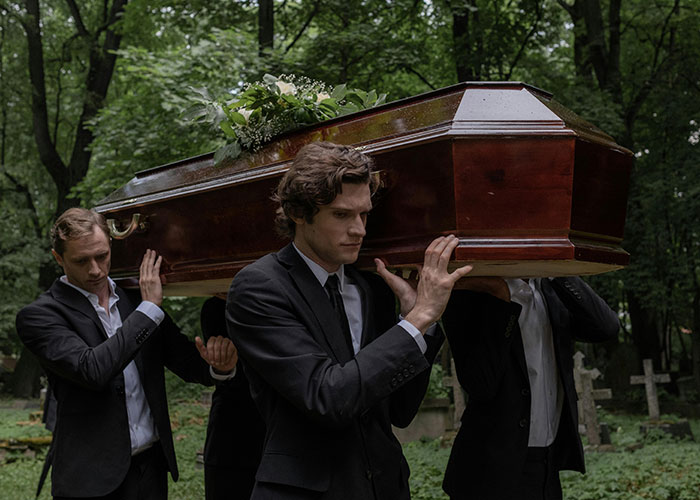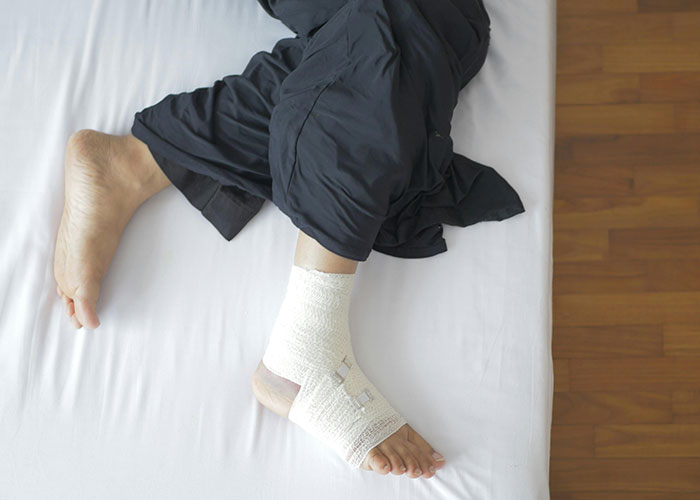Even though people fall ill or get into accidents and other unfavorable situations all of the time, many think that it’s not going to happen to them; that they are somehow immune to the hardships and calamities in life, which might prove to have a higher chance of happening than one thinks.
Members of the ‘Ask Reddit’ community recently discussed things that people don’t realize have an extremely high chance of happening, after one of them started a discussion about it. The netizens’ answers covered all sorts of misfortunes—and a couple of more positive scenarios—so if you’re wondering what might be more likely to happen than you think, continue scrolling through to find out.
On the list below, you will also find Bored Panda’s interviews with Professor and the founding director of the Fire Safety Engineering Group (FSEG) of the University of Greenwich in London, UK, Dr. Ed Galea, and Assistant Professor at Michigan State University in the US, expert in hazard mitigation and science communication, Dr. Robert E. Drost, who were kind enough to answer a few of our questions about emergency situations.
#1
Being diagnosed with a chronic illness.

Image credits: balou918
#2
We able-bodied tend to think of disabled people as unlucky but (as has been pointed out) being able-bodied is AT BEST temporary. Everyone will at some point have to face a life of disability unless you die early.
The ADA helps everyone and is one of America's great achievements.

Image credits: D-Alembert
#3
Sadly, Miscarriage in the first trimester. Some studies estimate as high as 40% of pregnancies terminate by 12 weeks.
Edit: Since this has gained mild traction I figure I should highlight a through-line featured in a lot of comments: normalize talking about miscarriage.
Obviously folks who have experienced a miscarriage should not be forced to discuss it if they aren't comfortable, but I have seen so many first-time pregnancies that miscarried where their first question was "what did I do wrong?" A significant majority of the time, there is nothing they did that triggered it; the more society is able and willing to provide that reassurance, the better off these people will be.

Image credits: dangledor5000
No matter how high or low the chance of an accident happening in your area, it’s best to always be prepared and know what’s the expected procedure in one situation or another.
“My motto is 'Chance Favors the Prepared Mind',” expert in crowd safety, Prof. Ed Galea told Bored Panda in a recent interview. “In most emergency situations, every second counts and so it is essential to be prepared.
“It is not uncommon in disaster situations for people to display what is known as 'Behavioral Inaction', a situation where they are so overwhelmed by the rapidly unfolding circumstances of the disaster that they don't know what to do, they can freeze and do nothing while they take in and try to comprehend the situation or they do things that are not appropriate to the situation. So having a plan of how you would respond to a disaster can make the difference between life and death.”
#4
Having an important relationship come to a sudden end.

Image credits: Remarkable-Bar1394
#5
Dying. Many people take things for granted and do not prioritise right. Something I’ve noticed after I got cancer. Because I made the same “mistake.”.

Image credits: Signal_Profile2865
Prof. Galea continued to point out that in a case of emergency, it’s crucial to know your surroundings. “Situational awareness is probably one of the most important factors in a rapidly changing environment. So knowing and understanding the layout of the space you are in is essential.”
For example, when you’re entering a crowded space, such as a shopping mall or a theater, the expert suggests checking out where the emergency exits are, and if possible identifying more than one exit. “Figure out how you would leave if you had to go in a hurry. Don't leave it until you are immersed in the disaster to figure out how to get out.”
#6
Being betrayed by someone close to you.

Image credits: Listening_Heads
#7
Complications during labor and delivery.
My wife wasn't high risk with either of our kids. We had no indication that we had anything to be concerned about.
With my first child, he got stuck in the birth canal and had to be emergency vacuum extracted. He likely would have been still born had we not had an OB at the ready to act fast.
My wife hemorrhaged unexpectedly during recovery after delivering our second child. She likely would have bled out had she not been monitored during recovery by labor and delivery nurses, and emergency treated by an OB when the hemorrhage happened.
I know many women want to have their children in different arrangements than a traditional hospital birth, and I respect that. Just understand that having a doula in a birthing center is not the same as a team of labor and delivery nurses along with an OB that has an OR with blood band ready if things go sideways. The likelihood of complications is much higher than many understand. Just because you aren't classified as high risk does not mean you are at zero risk of complications.

Image credits: titsmuhgeee
#8
People often don't realize that everyday accidents, like car crashes or household injuries, have an extremely high chance of happening compared to more dramatic or rare events.

Image credits: cathlene_mwa
“On an aircraft, identify where the nearest exits are—in front of you and behind you—and count how many seats you are away from the exit (if the aircraft fills with smoke, you may not be able to see the exit). And always try to get an aisle seat as close to an exit as possible,” Dr. Galea continued. “When seated, always keep your seat belt fastened and if you have to evacuate, leave your cabin luggage behind.”
While on a train, he advises sitting with your back towards the direction of travel, if possible; that way, if your train is involved in an accident resulting in a sudden stop, you won't be flung forward out of your seat.
#9
Getting hooked on social media. It happens so quickly and easily without ever realizing it.

Image credits: Human-Magic-Marker
#10
Being killed in a car accident through no fault of your own. We are driving metal projectiles near each other at high speeds. S**t gets unpredictable, and you can’t control other people.
Consequently, you could survive an accident that absolutely devastates your health, functioning, and finances for years. You never know when you’re going to wake up on your last truly normal day. .

Image credits: Square-Raspberry560
#11
That thing you needed to find last week? You’ll find it when you don’t need it anymore.

Image credits: clisr
“If you live in an area that is prone to wildfires or floods or earthquakes, always have a 'go bag' prepared. This should include a change of clothes, important medication, some cash, bottled water, some dried food or energy bars, and keep your important documents such as passports, birth or marriage certificates in a place that is easily accessible in case you need to grab them quickly.
“Another piece of advice, if you hear an evacuation alarm, react to it immediately, don't assume it’s a false alarm,” Prof. Galea added. “People don't appreciate how quickly an emergency can turn into a disaster, literally, 'every second counts', so start to evacuate as soon as you hear that alarm.
“In most survivable disasters, many people that don't make it either delayed the start of their evacuation or didn't know how to evacuate, so situational awareness is key (know your way out), as is a rapid response (when you hear the alarm, don't question it – get out).”
#12
Dropping your phone right after taking off the case.

Image credits: NoMistakeInThoughts
#13
Getting diabetes. At least here in the US people really don’t get how deep the deck is stacked against them.

Image credits: galspanic
#14
That we will permanently damage the environment. We aren't going green fast enough and politicians and big businesses keep working against green energy. We are setting ourselves up to be the first species to destroy ourselves because it wasn't profitable to do otherwise.
Discussing crowd related disasters, which is something few people think about when attending a big gathering—the excitement of seeing a favored artist or a spectacular show tends to occupy too big of a part of one’s mind—the expert in crowd safety pointed out that while they are not common, they still happen all too often.
“When they occur, they can have serious consequences for those in the crowd. Crowd disasters can happen anywhere in the world, from the poorest to the richest, most sophisticated countries in the world. They usually happen because authorities or those in charge failed to manage the space appropriately; there has either been poor or no control on numbers of people entering the space or there has been poor management of the crowds once the people have entered the space.
“Two recent examples of these types of disasters, where the authorities failed to control numbers and failed to appropriately manage the crowd once in the space, include the Itaewon crowd crush disaster of 2022 in South Korea (where more than 150 people died in a crowd crush on the streets of Seoul) and the Duisburg Love Parade crowd crush disaster of 2010 (where 21 people lost their lives and more than 650 people were injured simply because of poor crowd management).”
#15
A cyber attack or out of control vulnerability shutting down every single non air gapped communications network and computer on the planet, putting us in a quasi stone age for weeks or months. Very real possibility and almost certain to happen in the next decade or so.
#16
In the US, going into poverty because of medical expenses.
#17
We could die at any moment for any reason. Human body is extremly complex and it's easy to not know what happening with our own body.

Image credits: Faelysis
Another thing people are unsurprisingly not keen on thinking about, though they should, is a scenario where their home is hit by a natural disaster.
In an interview with Bored Panda, the expert in natural hazard mitigation, Dr. Robert E. Drost, seconded the idea that time and readiness are of utmost importance in case of an emergency situation. “Knowing what actions to take in a natural hazard event is a critical element to ensuring one’s safety. Often, decisions must be made quickly due to short lead times; the amount of time from when a warning is received until the hazard makes impact. There are many sources for information related to prudent preparation and evacuation practices available from local, state and federal agencies.”
#18
One thing people often don't realize has an extremely high chance of happening is experiencing some form of mental health issue during their lifetime. According to various studies, a significant portion of the population will deal with conditions like depression, anxiety, or stress-related disorders at some point. Despite this, mental health is still stigmatized, and many people don’t seek the help they need. It’s important to recognize that mental health issues are common and to encourage open conversations and support for those who are struggling.
#19
Blowing through the ground water and overfishing.
#20
Losing your phone or having it stolen. It’s more common than you think, so it’s good to have a backup plan.

Image credits: Vegetable-Sand-1946
According to Dr. Drost, the most important action to take in case there is a natural disaster is being prepared ahead of time, which entails developing an evacuation plan, identifying a safe shelter, and having a well-furnished kit that provides for hazard updates (a NOAA battery powered radio, water, cash, for example).
When working on being prepared for an emergency, you might want to take into consideration the type of the natural hazard that might occur, which is often linked to specific geographic locations based on weather and geologic conditions. “For instance, earthquakes are more common in the western part of the U.S. and tornadoes in the Midwest. Hurricanes are typical during certain seasons and most often along coastal areas. Though, this can—and has—changed as we experience changing climate patterns,” the expert noted.
#21
Personal injury. It’s atrociously easy to get hurt in a way that will stay with you for life.
Being aware will mitigate most of that risk.
Drinking severely limits your ability to mitigate.

Image credits: wanmoar
#22
Your parents dying. I’m in my mid-thirties and I’m seeing all these posts like “omg, I’m going to lose my mom/dad one day”
Yes. This was always a thing and you are supposed to outlive your parents. Make a plan now and talk about the hard stuff and then it’s not nearly as hard when it does happen. (My mother and I have been actively talking/planning for when she passes away since I was about 10- I lost my dad at 17).
#23
Becoming disabled. There’s so much ableism in the world because people think it could never happen to them.
Discussing natural hazards with Bored Panda, Dr. Drost added that it’s important that individuals pay attention to watches and warnings that are published to the public. “These can come from a variety of sources such as the National Weather Service, NOAA and the USGS; often this information is delivered by local meteorologists, social media and even cell phones. It’s a smart practice to be aware of what’s happening and have a plan to stay safe in a natural hazard event,” he said.
#24
The US power grid failing. It would have extreme consequences. Just about everything we need and do in American society requires some sort of power. Even the water you drink.
#25
Another biological outbreak!!!!!
#26
Tomorrow being almost identical to today.

Image credits: StreetsOfFire320
#27
I'm going to go against the mold here and list a good thing since everything else in this thread is negative:
Getting married. Almost 90% of people will get married in their lifetime but for some it can seem hopeless or nearly impossible.

Image credits: vx14
#28
Natural disasters like earthquakes and floods have a high chance of happening.

Image credits: Strange_Mine8007
#29
Crashing and possibly killing yourself and/or others when you prefer to pay more attention to your phone than the road. Texts and social media can wait until you've parked your car somewhere.
#30
We are probably well overdue for another mass-causality natural disaster somewhere in the world.
Likewise, we’re overdue for a mass-causality man-made disaster, like that dam in China or the one north of Baghdad suddenly bursting: Millions live down-stream from these dams.
#31
If you live long enough, the likelihood of developing some sort of cancer approaches 100% If nothing else gets you first, cancer will eventually.

Image credits: frygod
#32
A heart attack , I had one 2 week ago , straight out of nowhere .
#33
Food shortages. Climate change is destroying croplands and will do so more in the near future.
#34
People don’t realize that there’s an extremely high chance of getting hooked on a TV show just before it gets canceled. It’s like a cosmic law of entertainment: the more you love it, the quicker it’s destined to leave you hanging.
#35
I think people have an attitude of "well COVID JUST happened, so we're not due for another one of those for another century."
We've spent the last century building the perfect environment for pandemics.
#36
The loss of government protections for it's citizens.
#37
Major failure in government and financial networks and services all over the world because a lot of the backbone of essential softwares and servers runs on legacy codes, almost dead programing languages, and archaic hardware.
Major climate catastrophe because of the collapse of the AMOC.
#38
Seattle and the Olympic Peninsula will eventually be hit by a devastating [tsunami](https://www.cbsnews.com/news/earthquake-tsunami-seattle-fault-study/).
Oops, link goes to an article about the wrong fault. I meant to link to an article about the [Cascadia Subduction Zone](https://en.wikipedia.org/wiki/Cascadia_subduction_zone).
It's a matter of when, not if.
#39
Dying at any moment. There are countless reasons why you might die in 30 seconds.
Heart attack. Aneurysm. A very unfortunate fall on something sharp or piercing.
A car could crash through your house. Or a plane. The next door neighbor's propane tank might explode, sending shrapnel through your window and into you. Or you might be the unfortunate landing spot for a stray bullet.
If you're at work, someone might try to rob your business and shoot you or stab you. Or a hostile coworker might go postal. Or an irate customer.
But our brains conveniently shut all this out. We're not guaranteed the next minute, let alone tomorrow.
#40
I assume that the chances of walking over a dead body you have no idea is buried right under your feet is probably pretty high. Not saying it's a murder, could just be a skeleton from days of yore in a long-forgotten burial ground/cemetery. But I always think that I've probably been within 6 feet of more human remains than I'll ever realize.
#41
Anything bad if you don't prepare for it.
People don't prepare for bad scenario (flood, crime, earthquake, even war, etc) simply because they're to afraid about it. Thinking "preparing is just jinxing" "Bad thing happen when you think about it".
Preparation might not 100% prevent bad thing to happen. But it'd prevent bad thing from turning into terrible thing.
#42
You can be in love with someone for years and one day end up not knowing them at all.
#43
I think in general people struggle with the reality that a low probability event can have a high probability of occuring if you roll the dice often enough. Or more accurately we have a hard time keeping track of how often we are practically rolling the dice and taking that into account when we access risk. .
#44
40% of people will get cancer.
#45
Losing your 10mm socket.
#46
Dying from shoveling snow.
#47
The #3 cause of death in the United States is *accidents*.
#48
Diarrhea.







